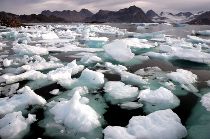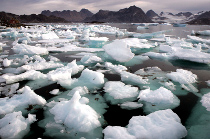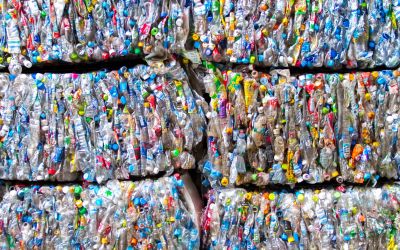Global economy will follow biodiversity’s decline
We are in the midst of the worst extinction crisis since the age of the dinosaurs.

 We are in the midst of the worst extinction crisis since the age of the dinosaurs-meaning, this is the worst thing to happen to life on our planet in 65 million years.
We are in the midst of the worst extinction crisis since the age of the dinosaurs-meaning, this is the worst thing to happen to life on our planet in 65 million years.
But such a statistic and even the term "biodiversity" sadly remains abstract and difficult to conceptualise; proof lies the world's total failure to meet the UN's 2002 proposal to "significantly reduce the loss of biodiversity."
City expansion, the destruction of coral reefs, and climate change-aka human beings-are responsible for the global crisis. If this is true, humans have been as detrimental to life on Earth as a super-volcano eruption.
Studies released from the University of Manitoba, Canada evidence the Arctic is being transformed by climate change twice as fast as anywhere else.
Whereas scientists originally estimated that by the summer of 2100 the Arctic could be ice-free, a new study indicates we may see an ice-free Arctic between 2013 and 2030. And this doesn't just mean the world will be deprived of its polar bears and penguins:
Since the Arctic acts to reflect heat, if ice disappears, weather patterns around the world will experience a significant impact: intensified cold and heat spells.
Compounding theeffect, if the permafrost melts, unprecedented amounts of methane would be released into the atmosphere, contributing twice as much as the entire United States' current CO2 emissions to global warming.
Scientists project that the Arctic ice-melt could cost the global economy $2.4 trillion; the sea-ice melting is easily comparable to the destruction of rainforests both in terms of biodiversity and climate change.
What's missing from most biodiversity coverage is an understanding that human life is inextricably linked and dependent upon biodiversity. A statement from a UN-backed 90 Nation conference in Oslo, Norway last week concluded, "Many more economic sectors than we realize depend on biodiversity."
Food production might be the most obvious, but what might not be understood is how many industries lie under the 'food production' blanket. The fishing industry relies on the health of our oceans and  freshwater lakes in which conditions in rapid decline.
freshwater lakes in which conditions in rapid decline.
Agriculture relies on arable soil and fertile weather conditions, while sustainable livestock depends on reliable agriculture. And that's just the beginning:
Tourism, medicines and biofuel energy production all rely on nature and species diversity. Tourists flock to areas high in biodiversity.
But as the areas surrounding biodiverse 'hotspots' (the Caribbean, Pacific coasts, Australia, etc.) expand development and building areas to accommodate tourists, wetlands dry up, and energy consumption and waste production rises-ecotourism's exploitation of the environment will lead to its own demise.
And, many customers no longer want to support companies that degrade the environment. The coral reefs are failing because when water temperatures increase, the coral becomes stressed and the organism that provides it with photosynthetic energy. This is called 'coral bleaching.'
In addition, untold potential for the medical industry lies in the genomic maps and enzymes produced in little-studied or still-undiscovered species-species that may already be on the verge of extinction.
Biofuel production, an important industry in developing renewable energy also depends sustainable environment with arable land and stable.
"There is an economic opportunity here," said Finn Kateraas, co-chair of the conference from Norwegian Directorate for Nature Management, "Protecting species can help safeguard long-term economic growth."
Investing in the environment's safety isn't just investing for the sake of the dying polar bears and tigers; it is investing in the safety of human-life and livelihood.
Author: Michael Good | Climate Action
Images Provided by: Badseed | Flickr; NOAA | Wikipedia






